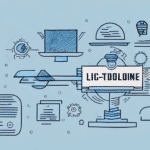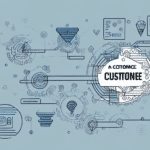Understanding Order Fulfillment Cycle Time in E-Commerce
In the competitive landscape of e-commerce, order fulfillment plays a pivotal role in determining customer satisfaction, retention, and overall business profitability. Order fulfillment cycle time refers to the duration between a customer placing an order and receiving the product. Optimizing this cycle is essential for businesses aiming to meet customer expectations and maintain a competitive edge.
Importance of Optimizing Order Fulfillment Cycle Time
Efficient order fulfillment directly impacts customer satisfaction and loyalty. According to a 2023 survey by Statista, 79% of consumers consider fast shipping as a key factor in their purchasing decisions. Delays or inaccuracies in order fulfillment can lead to negative reviews, increased return rates, and loss of repeat customers.
- Customer Satisfaction: Timely deliveries enhance the customer experience.
- Retention Rates: Satisfied customers are more likely to return.
- Brand Reputation: Consistent fulfillment builds trust and credibility.
- Operational Efficiency: Streamlined processes reduce costs and increase profitability.
Measuring Order Fulfillment Cycle Time
Accurately measuring the fulfillment cycle time involves dissecting the process into manageable stages:
- Order Processing: Time taken to validate and process the order.
- Picking and Packing: Selecting items from inventory and preparing them for shipment.
- Shipping: The actual transit time from the warehouse to the customer.
- Delivery: Final handover of the product to the customer.
Utilizing order management software can provide real-time tracking and analytics, enabling businesses to identify bottlenecks and areas for improvement.
Key Metrics to Track
- Order Accuracy: Percentage of orders fulfilled correctly the first time.
- Inventory Turnover: Frequency at which inventory is sold and replaced.
- Delivery Time: Average time taken from shipping to delivery.
- Return Rates: Percentage of products returned by customers.
Strategies to Enhance Order Fulfillment Efficiency
Implementing effective strategies can significantly reduce cycle times and enhance operational efficiency:
1. Optimize Inventory Management
Maintaining optimal inventory levels prevents stockouts and overstock situations. Implementing inventory management systems can help in forecasting demand accurately and managing stock efficiently.
2. Leverage Automation and Technology
Automation tools, such as Warehouse Management Systems (WMS), can streamline picking, packing, and shipping processes, reducing human error and increasing speed.
3. Improve Supplier and Shipping Partnerships
Establishing strong relationships with reliable suppliers and shipping carriers ensures timely restocking and delivery. Negotiating favorable terms can also reduce shipping costs and transit times.
4. Implement a Pick and Pack System
Organizing products in a systematic manner within the warehouse facilitates quicker retrieval and packing, thereby reducing the time taken to fulfill orders.
Overcoming Common Challenges in Order Fulfillment
E-commerce businesses often encounter various challenges in optimizing order fulfillment:
1. Managing Returns
Efficient returns management processes are crucial for maintaining customer satisfaction. Clear return policies and streamlined processing can mitigate the impact of returns on fulfillment cycle time.
2. Handling Shipping Delays
Unforeseen delays, such as those caused by logistical issues or natural disasters, can disrupt the fulfillment process. Implementing robust contingency plans and maintaining transparent communication with customers can alleviate the negative effects of such delays.
3. Balancing Cost and Speed
While faster shipping options enhance customer satisfaction, they can also increase costs. Businesses must find a balance between offering speed and managing expenses effectively.
The Impact of Faster Order Fulfillment on Business Success
Reducing order fulfillment cycle time has a multifaceted impact on business performance:
- Increased Customer Loyalty: Quick and reliable deliveries encourage repeat purchases.
- Enhanced Brand Reputation: Consistent fulfillment builds a positive brand image.
- Higher Operational Efficiency: Streamlined processes reduce costs and improve margins.
- Greater Profitability: Efficient fulfillment leads to higher sales and reduced expenses.
According to a report by Forbes, businesses that prioritize order fulfillment efficiency can see up to a 20% increase in profitability.
Leveraging Customer Feedback for Continuous Improvement
Customer feedback is invaluable for identifying areas of improvement in the fulfillment process. Implementing feedback mechanisms, such as surveys and reviews, allows businesses to understand customer pain points and adjust their strategies accordingly.
- Identify Common Issues: Analyze feedback to pinpoint recurring problems in the fulfillment cycle.
- Enhance Communication: Ensure customers are informed about their order status and any potential delays.
- Implement Changes: Use feedback to make data-driven decisions that enhance the fulfillment process.
Conclusion
Optimizing order fulfillment cycle time is essential for e-commerce businesses aiming to thrive in a competitive market. By measuring and analyzing each stage of the fulfillment process, implementing strategic improvements, and leveraging technology, businesses can enhance operational efficiency, boost customer satisfaction, and drive profitability. Continuous monitoring and adaptation based on customer feedback further ensure sustained success and a strong market presence.




















